David from Devon was 27 when he was diagnosed with what doctors initially thought was a low-grade brain tumour, a month before he found out he was going to be a dad for the first time. After delaying surgery to witness the birth of his son, David was told his tumour was in fact a grade 3 diffused anaplastic astrocytoma. Over time, treatment caused irreversible changes resulting in a decline in his cognitive age and ability. He died 12 years later in 2021 after his tumour progressed to a glioblastoma (GBM) aged 39. His widow, Clare, has written a book to share her experience of caring for someone living with the disease.
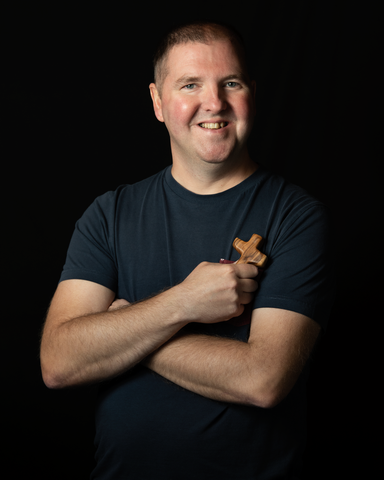
Here is David’s story, as told by his wife, Clare…
David and I got married in 2007 and moved back to north Devon in 2008. We found out about David’s brain tumour in April 2009 and less than a month later found out I was pregnant which, after trying for 18 months, which was a surprise to us both.
He was very sporty and a real family and friends orientated person. He grew up in Northern Ireland, which he represented playing table tennis. David loved all sports, especially football and golf. We were both practicing Christians and our strong faith was something that really helped us through our most challenging times.
At the start of 2009, David started getting focal auras and said he could smell gas but I couldn’t smell anything. He went to the GP but they didn’t find anything untoward or suspicious.
At the end of April, David had a seizure at 2am whilst we were in bed. He went to hospital and there followed a series of tests including an MRI scan which found a mass on his brain. About three weeks later, I found out I was pregnant.
Looking back, we were so naïve to the situation. Because David was so young and considered fit and healthy and we didn’t know anyone with a brain tumour, we assumed things would be OK. But we were blindsided by the disease.
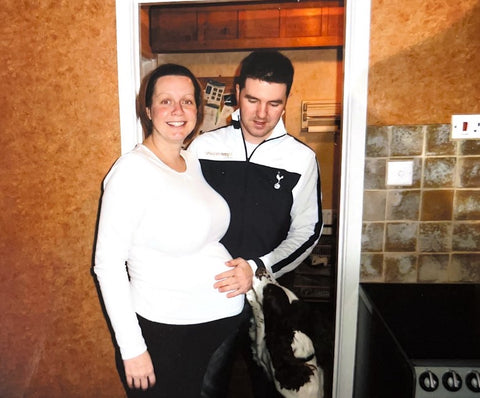
Despite the tumour measuring 7cm x 5cm x 4cm, the doctor told us it appeared low-grade and we made the decision to delay surgery until after our son was born as we both wanted to make sure he was around to meet our baby.
This really proved to be a good decision because it allowed us to get David's seizures under control and he continued to work his job with no issues.
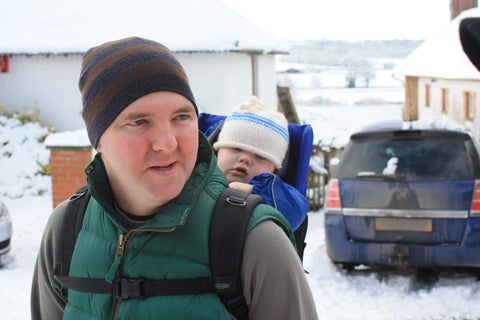
Ten weeks after our son, George was born, we left him with his grandparents to go to London for David’s first craniotomy. After the operation and following tissue analysis we found out the tumour was a grade 3 anaplastic astrocytoma and he needed further treatment.
He was given radiotherapy which was detrimental and I learned it could negatively impact healthy brain tissues for years after treatment.
Over time David's cognition and physical movement became slower and his personality became more childlike. All of a sudden our son who was five or six, was overtaking David in his speech, reading and writing. More scary and upsetting for us was the radiotherapy not only reduced David’s ability to function, but his short-term memory was severely impacted and mental age also reduced. Towards the end of David’s illness he acted quite like a child: it was like having two children at home. Although David looked like a man, he wasn’t able to function like one; he didn’t understand things and I found myself telling him how to do everything and caring for him as I did my son.
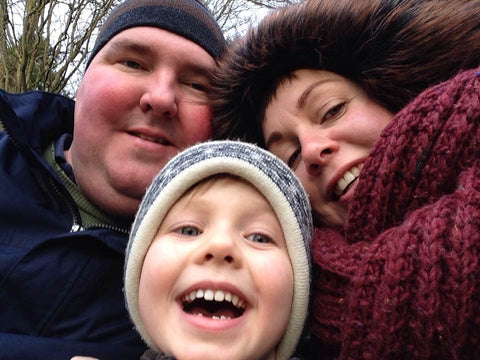
This didn’t make me love him less, just differently. But sadly, I lost my husband; my person, after his radiotherapy.
Over the course of the 12 years David lived with a brain tumour, he was hospitalised about eight times, suffering complications because of the tumour and also due to the many treatments he was on. On one occasion he had an operation for appendicitis, but severe internal bleeding post-operation caused him to need six internal drains. He was in hospital for nearly two months. His lack of short-term memory meant he’d wake in hospital, confused where he was. I slept next to him, waking up every half an hour to reassure him of where he was and why he was in hospital; showing him photos of the central line in his neck and telling him what the leads and tubes attached to his body were for.
We had three or four good years with him until July 2020 when his body started to change, and I knew the tumour was responsible. His left pupil was permanently dilated, his body started to go numb, and his headaches and nausea was unmanageable.
He had a second craniotomy and we found out his brain tumour had progressed to a glioblastoma (GBM). We were deep in lockdown when David started chemotherapy. He managed eight cycles until one day he was sat on the side of the bed and told me he was tired and that he had had enough. He ceased chemotherapy and we took as much treatment away that we could. Before he died, he was on over 30 different medications a day.
At the end of his life doctors suspected that David had leptomeningeal disease, a metastasis of the cancer from his brain to his spine. We never got a formal diagnosis as he became too ill to get a confirmatory scan. However, I knew we were close to the end and we were granted special permission to fly him to his childhood home in Northern Ireland one last time.
He died five weeks later with me, George and his sister Karen by his side.
David and I both worked in clinical research and specialised in oncology. I’ve seen many different trials for different types of cancers since David’s diagnosis in 2010, but few have advanced into become actionable treatments for brain tumour patients.
It's a horrible and cruel disease to die from – especially because the body stays healthy but the disease robs you of your loved one; as do many neurological diseases.
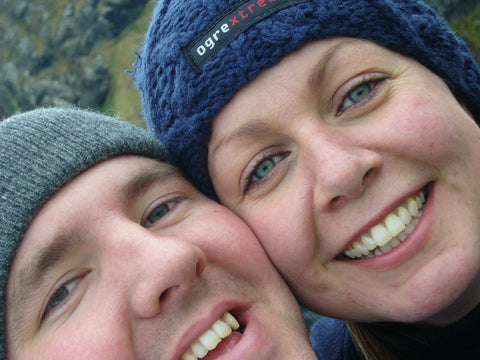
Since David died I have struggled with the injustice of him not being by my side and battle with the feeling as if I am no longer needed. David needed me for everything, and I showed my love for him by doing everything for him and helping him as much as I could. David should still be alive watching his son grow up.
You feel as though you’re caught between a rock and a hard place, always thinking about the ‘what ifs’ and ‘should I haves’ but I know that we made the right decisions at the time with the information we had. In hindsight we may have done things differently, but hindsight is a wonderful thing.
Our family’s journey of brain cancer inspired me to write a book called Choosing to Float, which I penned to help patients and loved ones from the point of view of a carer for someone living with the disease. But also to let families and loved ones know that there is light after death as, over time, I have found happiness.
My book is an opportunity to keep David’s memory alive and create a legacy to help future generations survive this hideous disease.
Clare Campbell-Cooper
February 2024
Brain tumours are indiscriminate; they can affect anyone at any age. What’s more, they kill more children and adults under the age of 40 than any other cancer... yet just 1% of the national spend on cancer research has been allocated to this devastating disease since records began in 2002.
Brain Tumour Research is determined to change this.
If you have been touched by David’s story, you may like to make a donation via www.braintumourresearch.org/donate or leave a gift in your will via www.braintumourresearch.org/legacy
Together we will find a cure

